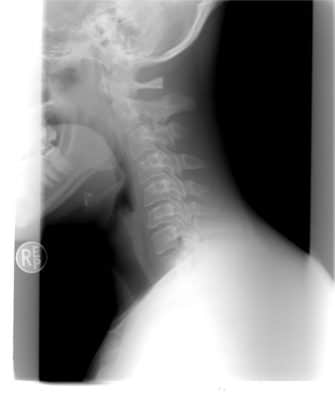Spinal Cord Injury (SCI) FAQs
Table of Contents
1. What is Spinal Cord Injury?
 Spinal Cord Injury (SCI) is damage to the spinal cord that results in a loss of function such as mobility or feeling.
Spinal Cord Injury (SCI) is damage to the spinal cord that results in a loss of function such as mobility or feeling.
2. What is meant by the word paralysis?
Paralysis refers to the inability to control movement or to detect sensations such as touch and temperature.
3. What are the major causes of SCI?
Frequent causes of damage are trauma (car accident, gunshot, falls, etc.) or disease (polio, spina bifida, Friedreich’s Ataxia, etc.).
4. Is Spinal Cord Injury synonymous with back injuries?
No. Back injuries can be ruptured disks, spinal stenosis or pinched nerves. A person can break her back or neck yet not sustain a spinal cord injury because only the bones around the spinal cord (the vertebrae) are damaged, but the spinal cord is not affected. In these situations, the individual will not experience paralysis after the bones are stabilized.
5. Are all spinal cord injuries a result of a fall and vehicular accidents?
No, some SCI are a result of diseases.
6. Can a person with SCI still continue to work?
Yes. Job accommodations such as modification in equipment, procedures, duties or hours can be made.
7. My husband has spinal cord injury. Can he still become a parent?
Most men with SCI have problems with ejaculation and/or sperm quality. Assistive reproduction technologies have enabled many men to father biological children. Adoption is another option.
8. What about women with SCI? Can they still bear children?
Yes. Fertility in women is usually completely normal within a few months of the initial injury.
9. Can a person with SCI still travel?
Yes. Tourist destinations and hotels are now accessible to people in wheelchairs. Air carriers and buses also accommodate people with disability.
10. Can a person with SCI still engage in sports?
Yes. Sports, like many other activities, can be adapted for people with disabilities. Examples are downhill skiing on a mono-ski, wheelchair basketball, and even sailing a boat with sip-and-puff control.
11. Can a person with SCI still drive?
Yes. Modified vehicles are made available and can be driven using hand controls. There are also gadgets to help you grip the steering wheel, or start the ignition. A van modified with an automatic ramp or lift enables one to drive without even getting out of the wheelchair.
12. Can a person with SCI still get a degree?
Yes. Campuses are now made accessible for people with disabilities. Scholarships are also available.
13. Can a person with SCI live to old age?
Yes. Medical advancements have been helping to improve the life expectancy of people with SCI. By taking care of themselves through medication, healthy diet, exercise and strong social and familial support, a person with SCI may live longer.
14. What recovery is expected following spinal cord injury?
The extent of recovery is impossible to predict, so people with incomplete injuries may recover no function, some function, or all function.
15. What is the difference between paraplegia and tetraplegia?
Paraplegia can be generalized as losing control of movement and sensation from the waist down, the term tetraplegia includes loss of function in the upper body, arms and hands.
16. Do people with SCI ever get better?
At the time of injury, the spinal cord swells. When the swelling goes down, some functioning may return. Functioning may return as late as 18 months after. However, only a very small fraction of people with SCI recover all functioning.
17. Is there a cure for SCI?
Most body parts and organs can repair themselves after they are injured, but the central nervous system cannot. The damage caused by an SCI can be reduced by limiting immediate cell death and reducing the inflammation of the injured cord.
18. How do people with SCI pass water and manage bowels?
Appropriate continence aids and techniques should enable people to re-establish a degree of control over both bladder and bowels and enable them to lead a normal life.
19. Will a person with SCI ever walk again?
Depending on the level of injury and degree of completeness, mobility may be regained in lower injury and presence of some sensation and movement.
20. What long-term medical follow-up is needed?
People with SCI need annual urological assessments to make sure kidneys and bladder remain healthy. Urinary tract infection and skin sores must be managed. If you have had a spinal injury at the expense of someone else, please don’t hesitate to contact us at Christensen & Hymas, 801-506-0800.
Photo courtesy of hkgoldsten0 and pixabay. The image is in the public domain.
Free Consultation
Learn your Rights. Get Answers. Free.